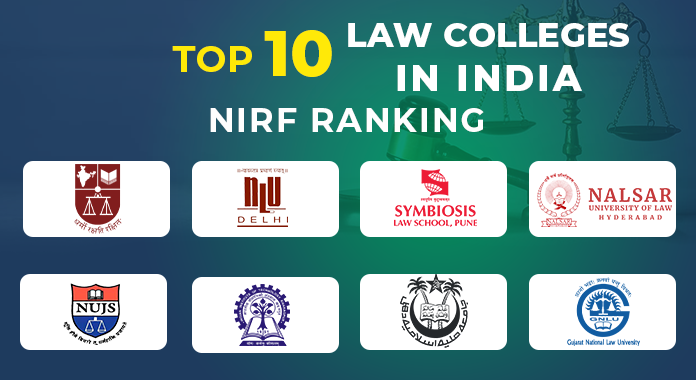The current dynamic educational scenario has Indian students looking at flexibility in the course for a degree in an MBA. Increasing work-life balance and growth of career need this to be an essential criterion; Indian MBA colleges have, therefore, both full-time and distance learning courses to meet diverse learning needs. It reflects the evolution of changing student demands, spanning fresh graduates and working professionals alike. Let’s consider in detail how these two paths differ, and how Indian colleges are catching up with these preferences.
Traditional Full-time MBA Experience
For decades, full-time MBA programs have been the gold standard for management education in the country. These programs are rigorous and ensure an immersive educational experience complete with networking opportunities and campus resources, normally spanning two years. In a full-time MBA program, students go through intensive study with faculty, industry experts, and peers in direct contact for an environment that prepares them personally and professionally.
The MBA colleges in India have all set their niche in the full-time MBA education space, with the Indian Institutes of Management, XLRI, and FMS being the foremost institutions. The institutions provide a host of specializations, hands-on experiences through internships, and great placement support. According to a report by the Graduate Management Admission Council (GMAC) in 2022, 86% of the full-time MBA graduates in India reported finding work within six months of finishing their program. Full-time MBA data reinforces that desirable career outcomes are a product of their value.
Flexibility with Distance MBA Programs
While full-time MBA programs are much more immersive, they are not really possible for everyone. Correspondence courses in the distance MBA offer flexibility, which in a way makes it much easier for students to study at their convenience, not wasting hours on regular classes. These courses are just right for working professionals who wish to increase their job prospect without giving up their working life. The popularity of MBA correspondence courses has greatly increased in India after the advent of online education portals.
In fact, institutions like Symbiosis, Amity have been pioneers in the field of distance MBA education if we see their contribution to the growth of flexibility in the courses. The flexibility in these courses opens them up to more students from larger sections often hailing from the remote parts of the country and committed to their work and family lives. As per KPMG, the estimated online education market of India is going to touch US$1.96 billion by 2021, with MBA courses topping the demand chart. Even the distance MBA programs are more economical. for instance, a distance MBA would cost around Rs. 50,000 at the most, which, when compared to the Rs.20 lakh that top tier full-time MBA programs in IIMs charge, is pretty less. Most of the colleges are now making investments in advanced LMS and virtual classrooms so that distance learners receive a much more interactive and engaging experience. These platforms help the students attend webinars, participate in discussions, get access to recorded lectures, etc. which makes learning more dynamic. For example, Amity University has live sessions by industry leaders, video lectures, and interactive modules as part of its distance MBA program.
This evolution is bridging the gap between the distance and full-time MBA programs. Better technology and increased accessibility to quality content are thereby making the distance MBA students to have a more wholesome experience in education. But even with such developments, the opportunity for personal networking on campus and other placement opportunities on campus would still not be available for the distance learners.
Career Opportunities and Placements
One of the most important benefits associated with full-time MBA courses is the strong placement support given by these programs. The elite category of MBA colleges in India, like IIM Ahmedabad and IIM Bangalore, has always effectively placed its students at high salary packages. In the year 2022, the average salary package for full-time MBA graduating students from such institutes was Rs. 25 lakhs per annum. These colleges provide a massive opportunity for comprehensive placement drives, due to which students can get into direct touch with leading companies and industries.
While distance MBA courses do not usually offer the same kind of extensive placement support, there is still value for working professionals looking for padding their resumes. Many use distance MBA degrees to either climb the corporate ladder within current companies or as a way of making big changes in terms of field. Distance learning makes them have advanced skills and knowledge without having to take time off their careers, making it a feasible option for those already established in their respective fields.
Distance MBA: A Trending Choice for Women
The distance MBA courses are more endearing to women managing careers, families, and education. According to a McKinsey report, females constitute around 42% of enrollments in online education in India; this trend is particularly more pronounced in business and management courses. For women looking to rejoin the job market after a break, distance MBA courses help them bridge their skill gap with an intention to have a better re-entry into the job market without getting into the commitment of full-time courses.
The Indian MBA colleges have made relentless efforts to make the atmosphere of learning at these places more inclusive. A greater number of programs are designed with sensitivity to different needs and life stages, leading to a shift in helping women approach further studies to be able to achieve their career ambitions.
The Future of MBA Education in India
With Indian colleges continuing to adopt and adapt to student preferences, the future of MBA education seems increasingly hybrid. In any case, for a full-time program, it happens to be the top choice for those who search for immersion in the experience. Nowadays, distance MBA programs are establishing their own space with flexibility and affordability. This blend of technology and education has been creating new possibilities for students to access quality education at their own pace and space.
Conclusion
With more and more Indian MBA colleges realizing the need to turn toward mass-oriented programs, choices for doing an MBA are more varied and accessible today than ever before. Both full-time and distance MBA have specific advantages, and the choice really depends on individual needs, career goals, and lifestyle preference. The overall deal is that MBA colleges in India are changing every day concerning what is important for the students, which in itself reasons the management course’s importance and accessibility to all.
Whether one does a full-time MBA or correspondence MBA, the ultimate aim remains the same: to arm oneself with skills and expertise that will help one make waves in the corporate world. These top MBA colleges in India are on the forefront of this education revolution, empowering students to maximize their potential, however they choose to do so.


